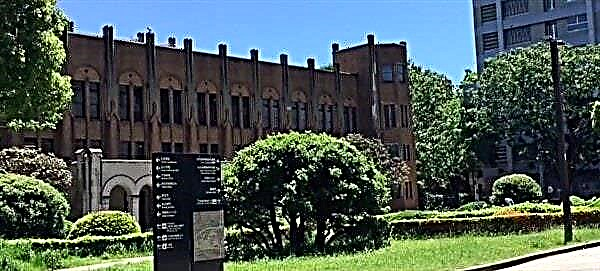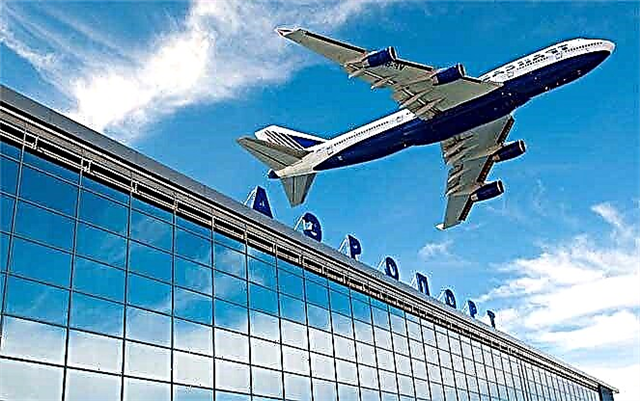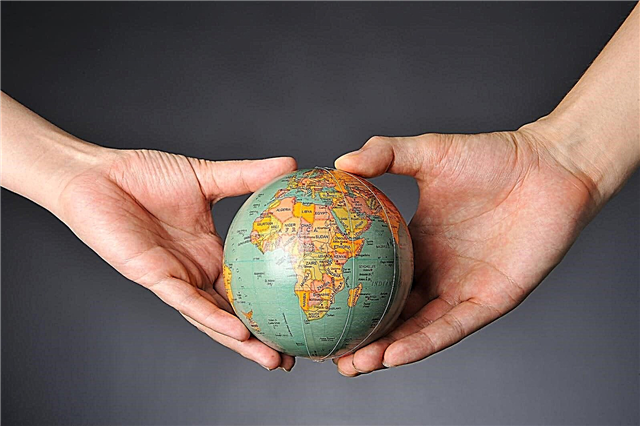Refugees and forced migrants are close, but by no means identical, concepts in domestic migration law. In Russian journalism, these concepts are often confused, although from a legal point of view, they are strictly differentiated.
Legal status of refugees and internally displaced persons
The legal status of these two categories of migrants is different in terms and conditions of granting, the list of rights received by a migrant, as well as the reason for deprivation of status.
Refugees are persons who left the country as a result of persecution for one reason or another and do not want to return to their homeland. Internally displaced persons leave one of the regions of the country and move to another due to persecution or violence committed against them.

Normative base
The legal statuses of both categories are governed by the following legislative acts:
- Law of the Russian Federation of 19.02.1993 No. 4530-1 "On Forced Migrants";
- Law of the Russian Federation of 19.02.1993 No. 4528-1 "On Refugees".
Also, the protection of the rights of political refugees is guaranteed by Art. 63 of the Constitution of the Russian Federation, acting on the basis of the UN Geneva Convention. Issues related to the provision of social housing to these groups of migrants are regulated by Art. 108 LCD RF.
Grounds for recognition
For reasons of provision, these concepts are as close as possible: both refugees and internally displaced persons are persons who have left their homes because of the threat to life and health for reasons of racial, ethnic, political affiliation, or for reasons of religious or social enmity.
People who leave their homes because of:
- Technogenic disasters;
- Natural Disasters;
- Military action, etc.
Differences between refugees and migrants
You May Also Like
The legal statuses of the two categories of migrants differ in the subjects to which they apply:
- Internally displaced person - it is always a citizen of the Russian Federation, a refugee - always has the citizenship of another state or is a stateless person;
- An internally displaced person leaves one subject of the federation and moves to another, a refugee arrives on the territory of the Russian Federation from abroad.
Rights and obligations of migrants
The rights of individuals after they acquire status are also somewhat different. The forced migrants are subject to all the rights and obligations of citizens of the Russian Federation. They have the right to:
- Participate in elections and referenda;
- Work as government and municipal employees;
- Receive subsidies for home purchases and qualify for housing improvements.
Refugees do not have Russian citizenship, therefore they are not entitled to participate in elections and work in the civil service. They also cannot:
- Receive scholarships while studying;
- Apply for housing;
- Count on gratuitous subsidies for the purchase or construction of residential properties.
Dates of validity
Forced migrant status is issued to a person for a 5-year period. Upon its expiration, the status is renewed annually, provided that the citizen has not purchased a home for himself.
Refugee status is granted indefinitely. Once a year and a half, persons with this status must be re-registered with the authority that granted it. Based on the results of consideration, the status is confirmed or canceled due to changes in the essential conditions.
Social protection of refugees and forced migrants
Both categories of migrants are persons who have suffered from infringement of their rights and are forced to change their place of residence. Therefore, they have the right to count on receiving certain compensations and social benefits.
Benefits and benefits
You May Also Like
Internally displaced persons and refugees are provided with various benefits designed to compensate for the hardships these persons suffer during resettlement.
Both categories of migrants have the right to count on:
- Cash benefit in the amount of not less than 100 rubles... per day for each family member for applicants for status and 150 rbl... daily - for those who possess it;
- Free food;
- Free travel and baggage transportation or monetary compensation for this;
- Medical assistance and free provision of medicines;
- Placing children in kindergartens and schools;
- A lump sum payment (set by the subject of the federation in which the person is accommodated).
Help with the place of residence
The main thing that refugees and displaced persons are deprived of is their home, so the first priority for them is to find a new place of residence. One of the duties of the state in relation to such persons is to find a place of residence on a temporary or permanent basis.
Temporary Accommodation Centers are open for refugees and persons applying for this status. In the future, refugees receive the right to settle free of charge in the social housing fund.

Internally displaced persons are also placed in the social housing stock. Subsequently, they are eligible for personal housing under the forced migrant program. The state can provide an interest-free loan or subsidy for the construction or purchase of new housing.
Help with employment
The advantage of refugee status is that you do not have to buy a labor patent. For other categories of immigrants, its acquisition is mandatory. The only limitation is the impossibility of getting a job in the civil service, since refugees do not have Russian citizenship.
Internally displaced persons, as citizens of the Russian Federation, have the right to be employed by civil servants.
For the early adaptation of these groups of migrants, the territorial and local authorities should facilitate their early employment. Labor exchanges and employment centers are obliged to register them as unemployed, facilitate the early search for work, and, if necessary, send them to professional retraining.
Problems faced by forced migrants
The problems of both categories of forced migrants are associated with relocation and can be of various nature. First of all, individuals are worried about bureaucratic obstacles. Obtaining and confirming the status requires the migrant to repeatedly visit government agencies, collect documents and be prepared for time-consuming.
Almost every migrant faces psychological difficulties. Change of place of residence, and often of cultural and linguistic environment, leads to psychological alienation of migrants and refugees, problems with adaptation, integration into a new society, finding a job and a new circle of friends. Often, many migrants cannot cope with psychological pressure and return to the region or country of origin.
Another problem is of an everyday nature. The arrangement of everyday life in a new place of residence requires large financial costs and personal efforts. Many migrants take years to create a level of prosperity and living conditions comparable to their previous place of residence.
Grounds for loss of status
The status can be lost if the conditions, contributing to its receipt, change.
For internally displaced persons, the reasons for canceling the status may be:
- Loss of Russian citizenship;
- Resettlement for permanent residence abroad;
- Return to the region of departure for permanent residence;
- Revealing that the person provided incorrect information or forged documents during registration;
- Status expiration.

For refugees, the reasons for deprivation or loss of status are more varied. The reason for the loss can be:
- Obtaining citizenship of the Russian Federation or another country;
- Obtaining a residence permit in the Russian Federation;
- Return to the country of departure;
- Changes in the actual circumstances that forced the refugee to leave their homeland;
- Conviction for a criminal offense on the territory of Russia;
- Bringing to administrative responsibility for the distribution of narcotic drugs;
- Providing false information or false documents during registration.
Both categories of forced migrants are united by the reason for granting this status - persecution or threat to life for political, ethnic, linguistic, social or other close reasons. However, the granted rights and responsibilities, as well as the conditions for obtaining the status, differ due to the fact that internally displaced persons move within the Russian Federation and have its citizenship, while refugees, on the contrary, are foreigners.











